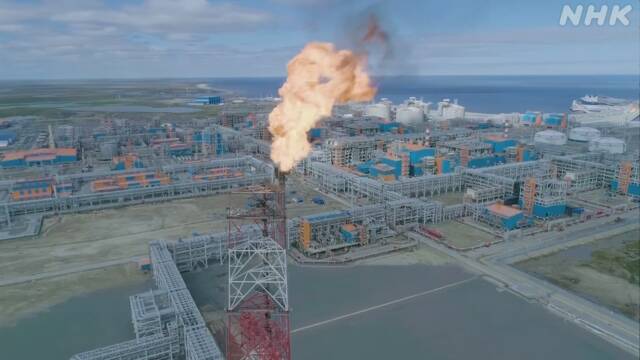From the 26th, the G7 = Climate, Energy and Environment Ministers' Meeting of the seven major countries will begin in Germany.
Following Russia's military invasion of Ukraine, the focus will be on the content of coordinated actions, such as how much Russia's reliance on oil and natural gas can be reduced.
The G7 Climate, Energy and Environment Ministers' Meeting will begin on the 26th in Berlin, Germany, and will be attended by Deputy Minister Hosoda of the Ministry of Economy, Trade and Industry and Deputy Minister Ooka of the Ministry of the Environment from Japan.
Following Russia's military invasion, G7 countries have already announced bans and gradual reductions in coal imports, and gradual or immediate bans on oil imports.
However, the specific time has not been specified.
Furthermore, European countries such as Germany and Italy are highly dependent on Russia for natural gas, and Japan also imports a certain amount.
The meeting will discuss how to reduce the dependence on Russian energy from the perspective of energy security.
The abolition of coal-fired power generation will also be on the agenda.
Five of the G7 countries, including the United Kingdom and Germany, have already announced policies to abolish coal-fired power.
On the other hand, Japan, which has scarce resources, intends to explain its policy of utilizing coal-fired power by focusing on measures to reduce carbon dioxide emissions using new technologies.
The meeting will be held for two days and a joint statement will be finalized on the 27th.
Pay attention to what kind of message the G7 will send out
At this G7 Climate, Energy, and Environment Ministers' Meeting, the ministers of the seven major G7 countries, including Japan, the United States, and Germany, gathered to find out what kind of policy they should take to tackle climate change in the future. An international conference to discuss the path.
However, at this meeting, "de-Russia" has become a major theme following the invasion of Ukraine by Russia.
Above all, the focus is on what kind of wording will be written in the joint statement to reduce the dependence on Russian natural gas.
As with coal and oil, if a policy such as an embargo is put forward, the G7's stance of "de-Russia" will become clear, but for Japan it will be greatly affected by the stable supply of energy.
Japan imports 9% of the total from Russia in the form of LNG = liquefied natural gas.
Almost all are imported from Sakhalin, Russian Far East.
This is a level that is more than 3% of the amount of power generated in Japan.
At first glance, it may seem small, but it is not easy to procure that amount from other countries.
If European countries move to switch from natural gas to LNG by pipeline from Russia, there is a possibility of a battle for LNG.
If that happens, soaring prices will be unavoidable, and Japan will only be able to procure LNG at fairly high prices, which may affect our lives through electricity prices.
For this reason, the Japanese government is still cautious about restrictions on imports of Russian natural gas at this time.
As Russia's invasion of Ukraine prolongs, it will be interesting to see what kind of message the G7 will send out.

